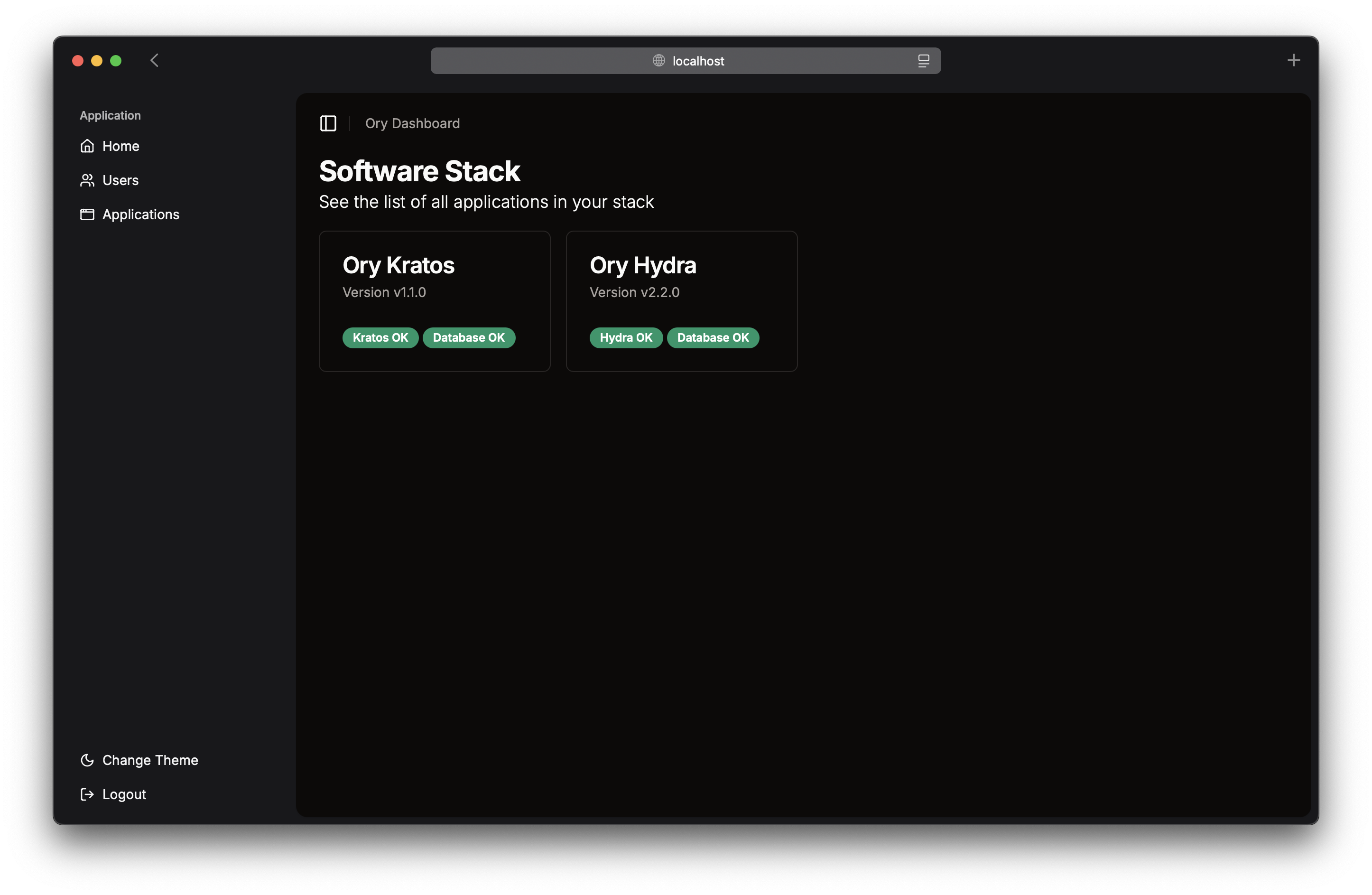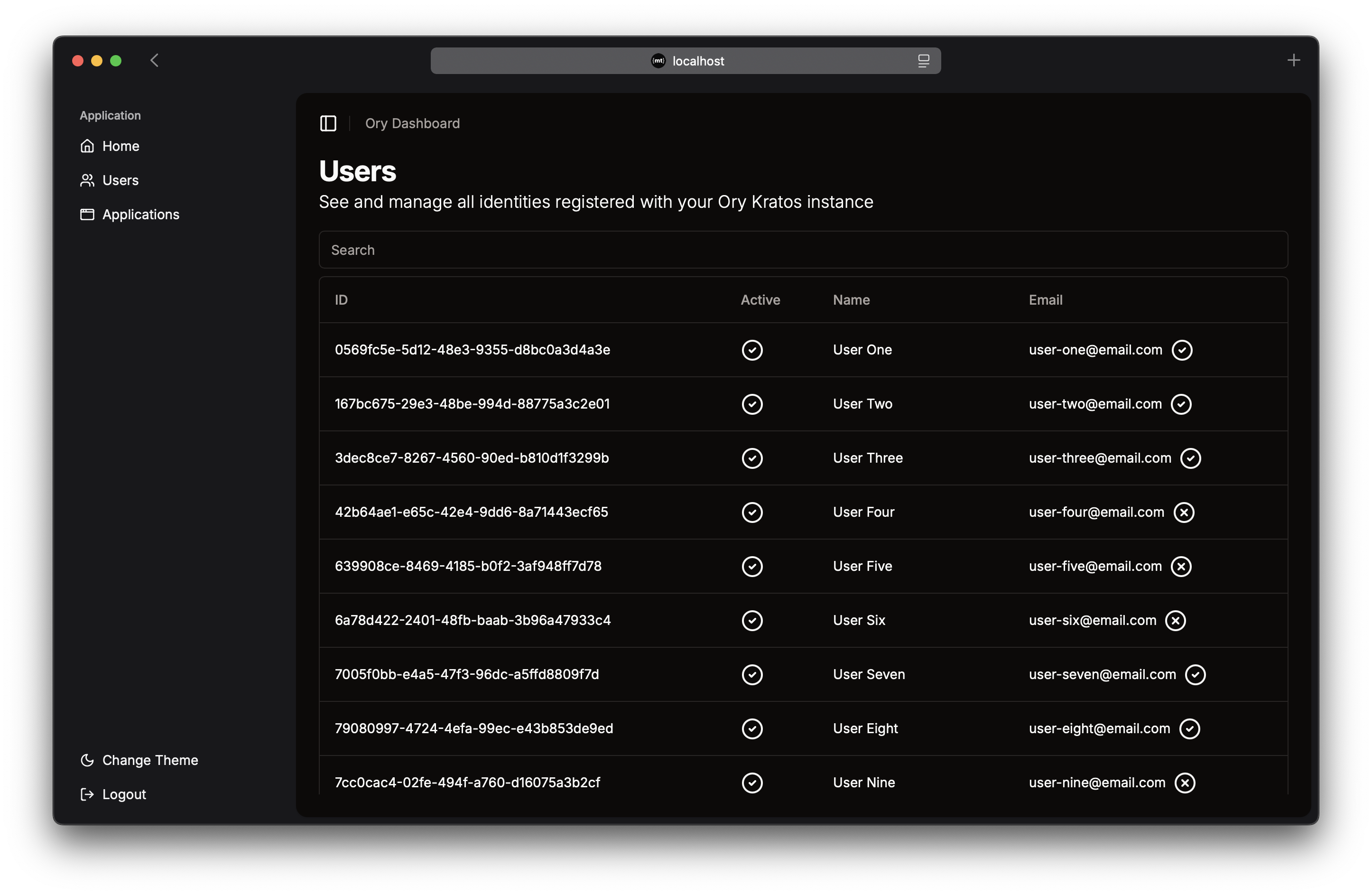# Next-Ory
Get started with the Ory stack quickly and easily.
> [!Warning]
> This project is work in progress. There is no guarantee that everything will work as it should and breaking changes in
> the future are possible.
The goal of this project is to create an easy-to-use setup to self-host the [Ory](https://www.ory.sh) stack with all its
components. It will contain an authentication UI, implementing all self-service flows for Ory Kratos and Ory Hydra, as
well as an admin UI. All UI components are written in NextJS and Typescript, and styled using shadcn/ui and TailwindCSS.
## Getting started
Start the backend services using Docker Compose:
```bash
cp /docker/ory-dev/.env.example /docker/ory-dev/.env
docker compose -f docker/ory-dev/docker-compose.yaml up -d
# optional to test consent flow
sh docker/ory-dev/hydra-test-consent.sh
```
Then start the authentication UI:
```bash
cd authentication
cp .env.example .env
bun install
bun run dev
```
Create an account using the authentication UI on http://localhost:3000.
The verification code can be found on the dummy SMTP dashboard on http://localhost:4436.
Inside another terminal session we can start the dashboard UI:
```bash
cd dashboard
cp .env.example .env
bun install
bun run dev
```
To access the admin dashboard, the `identity` has to be a `member` of the `admin` role. (Relation: roles:admin@<
identity_id>#member)
The identity ID is displayed on the screen when accessing the dashboard without sufficient permissions.
Use the identity ID to execute the following script with the identity ID as an argument.
```bash
sh docker/ory-dev/keto-make-admin.sh
```
## Deployment
*soon.*
## Authentication UI
The authentication UI is already implemented and working. It supports all self-service flows for Ory Kratos and Ory
Hydra. It is implemented in a way, that customizing style and page layout is very easy.
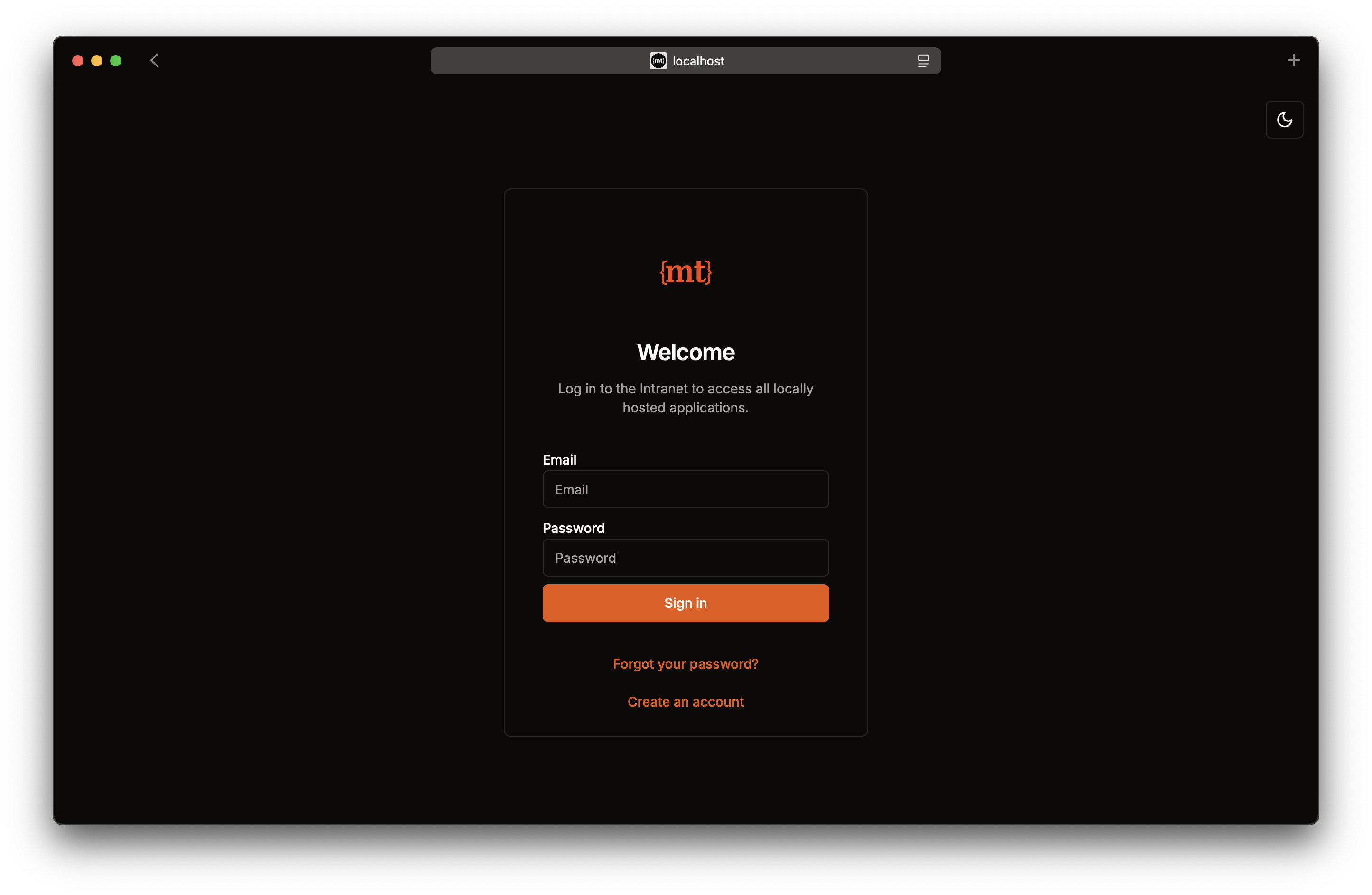
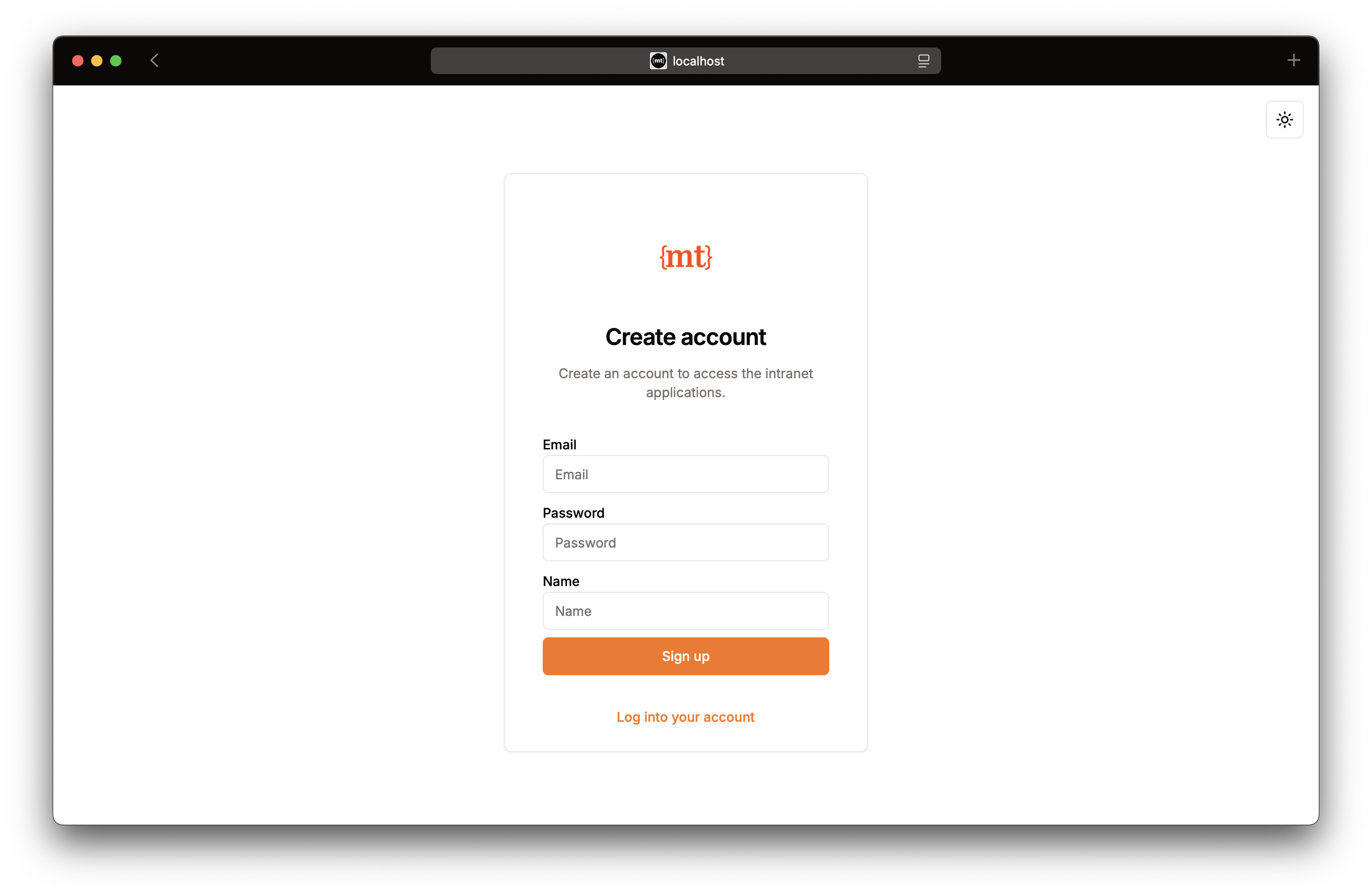
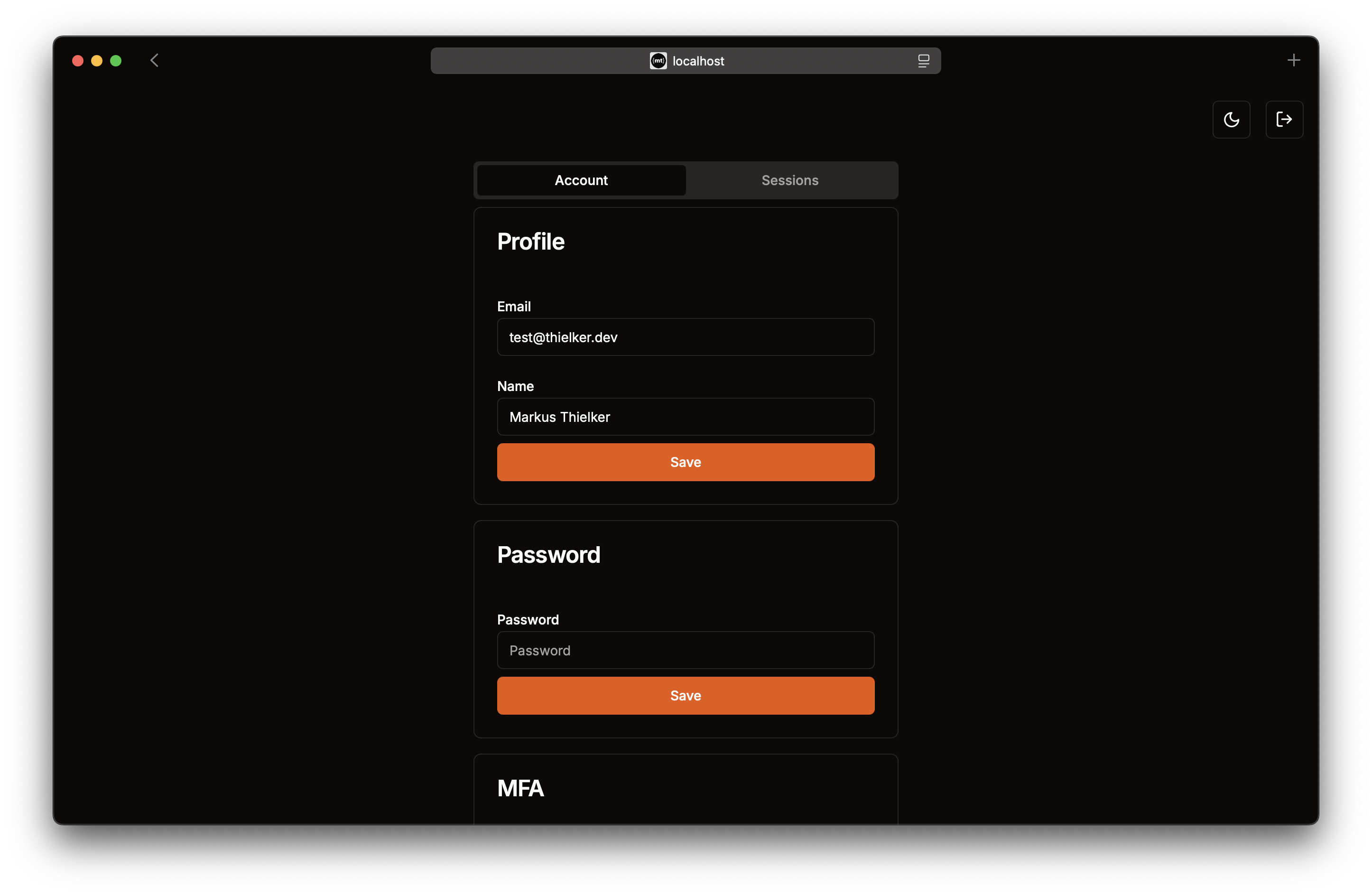
## Admin Dashboard
Right now I am working on the admin dashboard for all Ory applications. It will provide you with an overview of your
instances and let you manage users, OAuth2 applications and more. It is ***work in progress*** and should be handled
with caution.
